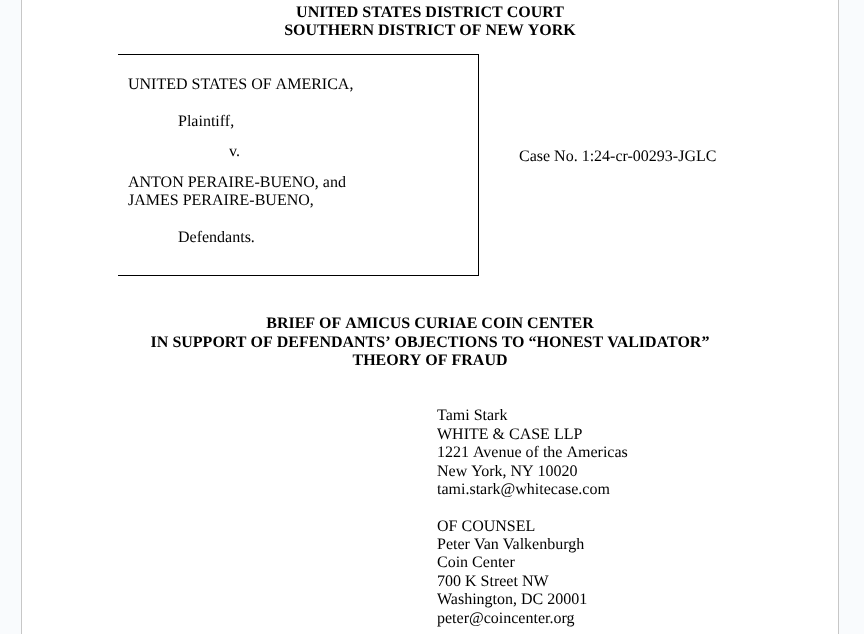
Fraud Case on Ethereum — or Just Business as Usual?
In the United States, a unique criminal case is unfolding against the Peraire-Bueno brothers — validators of the Ethereum network in 2023 who allegedly used MEV manipulation to earn about $25 million at the expense of other network participants who had no intention of enriching them.
Here’s how it worked:
- They created “bait” transactions that made other validators believe they could include them in their own arbitrage strategies.
- When those validators rushed to capture MEV opportunities, the Peraire-Bueno brothers replaced or reordered the block to take the profit for themselves.
From a traditional economic standpoint, outside the Ethereum world, this sounds like classic fraud, doesn’t it? There’s deception, there’s financial harm, and there’s personal gain. Naturally, when prosecutors learned about the scheme, they opened a criminal case.
But here’s the twist: in Ethereum, thousands of validators do the same thing. Competing for MEV is common practice, and those who lose often take a hit. What would normally qualify as fraud in the traditional economy is, within Ethereum’s validator community, considered business as usual. In fact, no one has come forward as a victim.
That’s why Coin Center — a research and policy organization defending open cryptocurrency networks — filed an amicus brief urging the court to reject the prosecution’s logic. The group warned that convicting the defendants could expose all validators to potential criminal charges and undermine trust in decentralized systems by introducing a layer of government-imposed “moral norms” on top of mathematical protocol rules.
DeFi on Ethereum has long been criticized for allowing validators to extract extra value from others. Competing blockchains are already developing solutions to limit or eliminate MEV altogether. Now, the government seems to have found a simpler way: just make it illegal.
You could argue that the prosecution deserves criticism — but not for the reasons Coin Center thinks. The real problem isn’t that the state is trying to regulate validators. The state may be the first to call things by their proper name. Nevertheless, prosecuting the Peraire-Bueno brothers for something that’s been routine economic practice inside Ethereum still feels like overreach.













